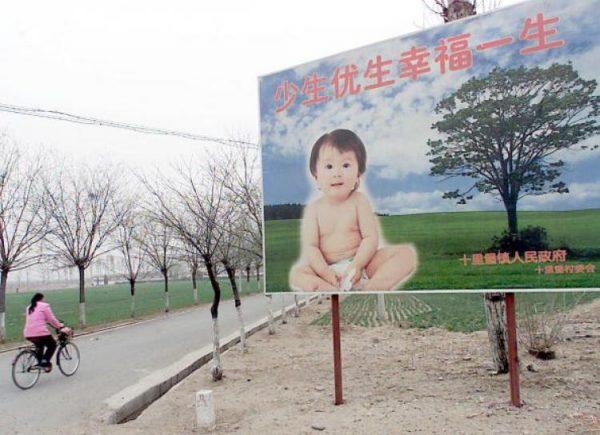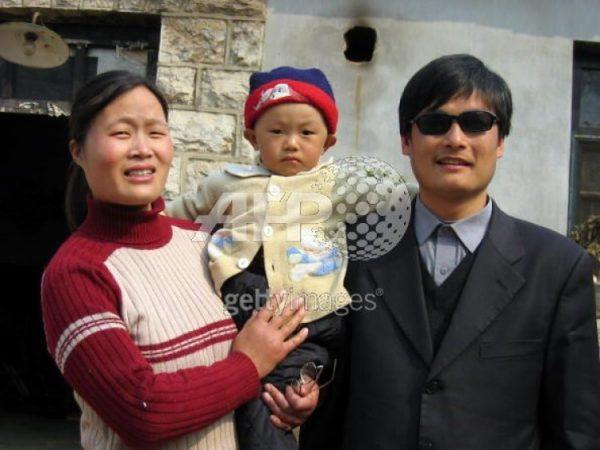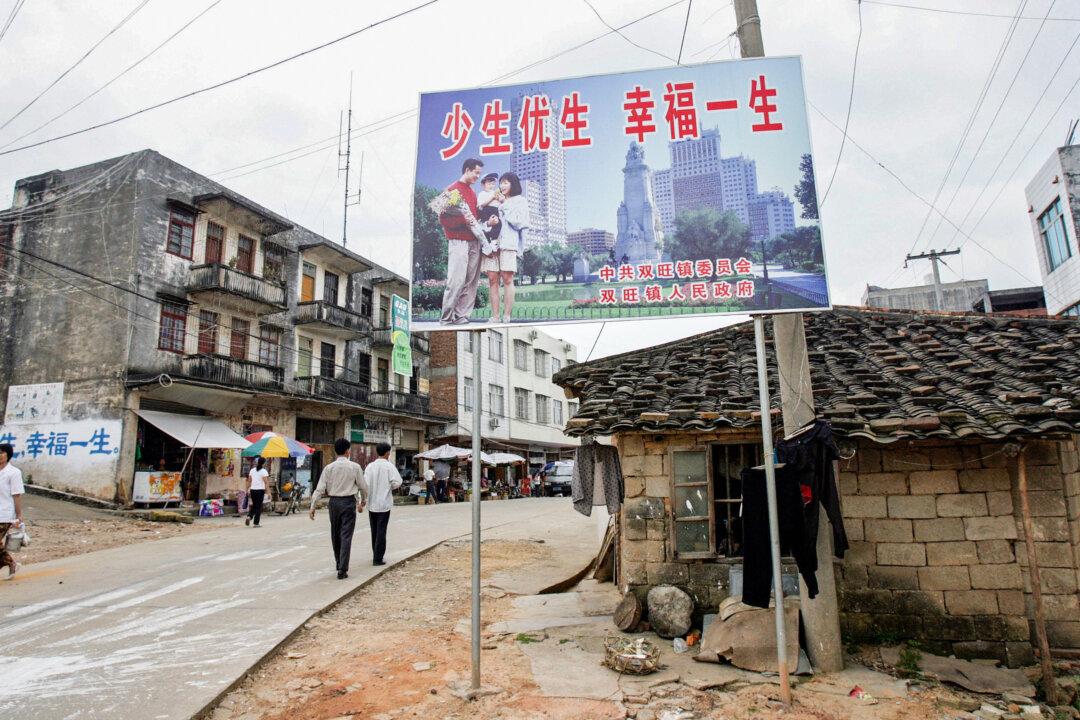Many local authorities in China have recently issued notices to revise the one-child policy slogans on billboards. The slogans, often gruesome and brutal, reflect the horror and inhumanity of the Chinese Communist Party’s (CCP) policy over the past few decades.
On March 27, the Health Commission of Fengjie County in Chongqing Municipality issued a draft for soliciting comments on the implementation plan of the three-child policy. The main goal of the draft was to “strive to solve the problem of women not wanting to, or afraid to, give birth,” to “remove individual childbearing conditions from household registration, school enrollment, employment, excellence selection, and promotion,” and to deal with “historical problems.”
The so-called historical problems include the still widespread propaganda slogans on family planning, such as the following examples: “Have the over-birthing families ruined”; “It is better to have a river of blood than to have excess children”; “Induce it, abort it, absolutely don’t give birth to it”; “Better to have ten more graves than one more newborn”; “The entire village will get in trouble for an unplanned birth.”

CCP’s ‘Brainwashing Propaganda’ Is Ineffective
According to the official population data, the birth rate hit a new low of 6.77 per 1,000 in 2022, compared with more than 10 per 1,000 in 2019. It was also the first time in more than 60 years that the CCP’s official population data showed a significant decline.“Nowadays, many older women don’t get married, let alone have children, because life is too stressful,” Wang Hao (pseudonym), a resident of Changchun city, told the publication. “In my area, there is no high salary. People working in the [state] system are better off. Those who work in the kindergarten canteen opposite my home earn only 1,700-1,800 yuan [$255-270] a month.”
From ‘Strength in Numbers’ to Population Control
In 1957, economist Ma Yinchu published “New Population Theory,” which proposed that China needed to control its population. However, former CCP leader Mao Zedong believed that “there is strength in numbers,” and Ma’s publication was considered a “great poisonous weed” attacking the CCP. As a result, China’s population soared in the 1960s. According to official data, from 1962 to 1972, the average annual birth rate was 26.69 million, with 300 million births in total.In the 1970s, the CCP shifted its attitude to population control, and from Sept. 25, 1980, it called on couples to have only one child. The one-child policy was written into China’s constitution in December 1982.
Women had to undergo four primary operations: intrauterine device (IUD) insertion, tubal ligation, abortion, and induced labor.
Human Rights Crisis Under One-Child Policy
Many women and families have been subjected to inhumane persecution under the one-child policy.In Qianjiang city, Hubei Province, for example, at least 300 women were victims of botched hysterectomies. Most rural women were forced to get a hysterectomy around the age of 24, and the so-called operating table was merely a desk. In some cases, the pain was unbearable immediately after surgery, with swelling in the abdomen and back pain, and the condition deteriorated to the point where the patient became bedridden.

The CCP’s family planning rules also prohibited couples from having a second child if their firstborn was a boy. However, if the first child is a girl, the couple can have a second child after six to eight years, but only with the authorities’ approval. This has led to a humanitarian crisis in which unwanted baby girls were aborted, given up for adoption, abandoned, and murdered.
Those 400 million people were all killed by the CCP, Li Yanming, a political commentator, told The Epoch Times on March 30.
“After the CCP established the government from Mao Zedong’s belief that ‘there is strength in numbers,' encouraging Chinese people to have more children in preparation for wars, to implementing the national policy of family planning, and then to encouraging families to have more children now, behind the capriciousness is the arbitrary enslavement of the people in order to preserve its dictatorship, creating not only a severe demographic crisis, but also a deep social and family crises,” Li said.




